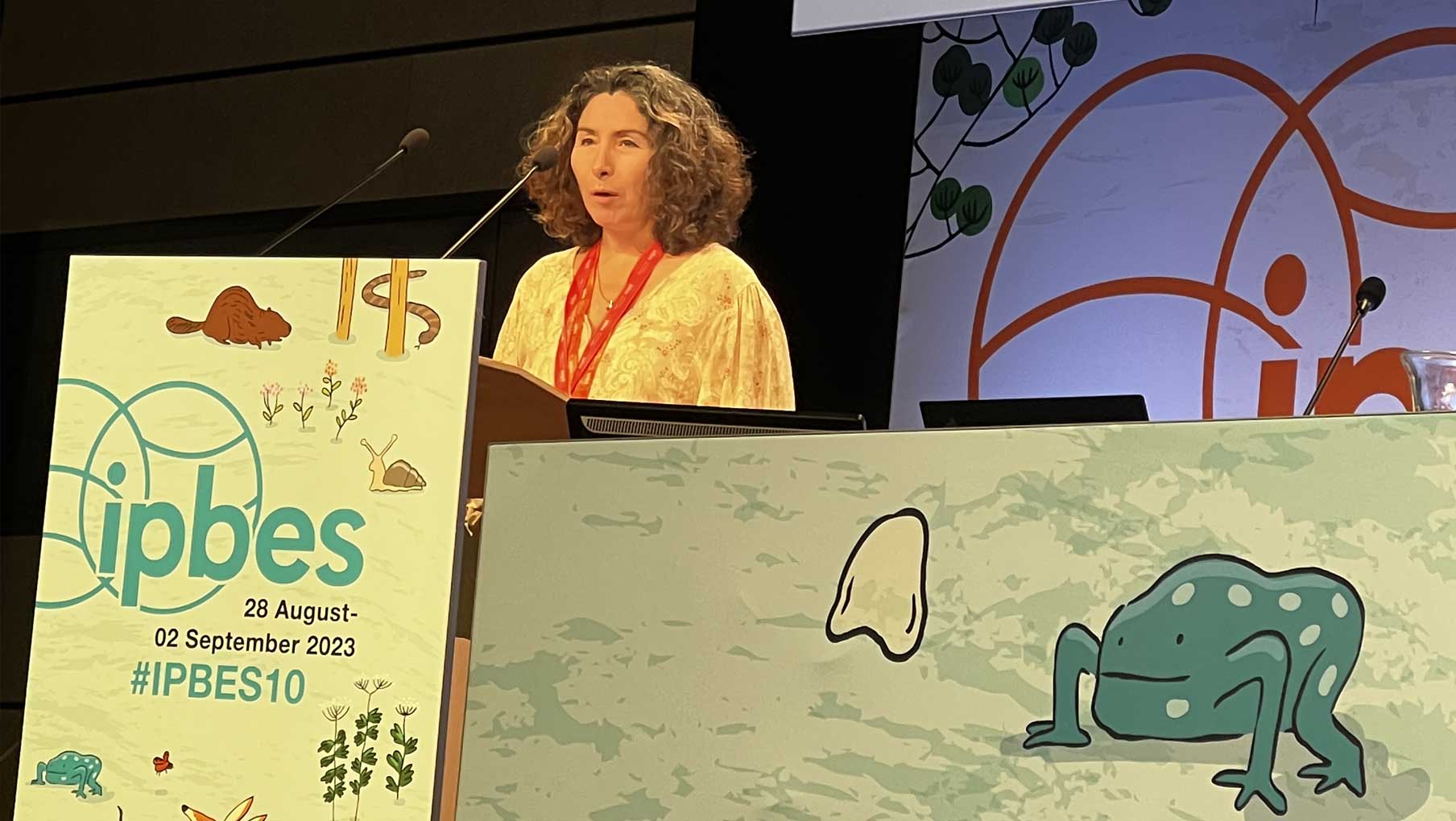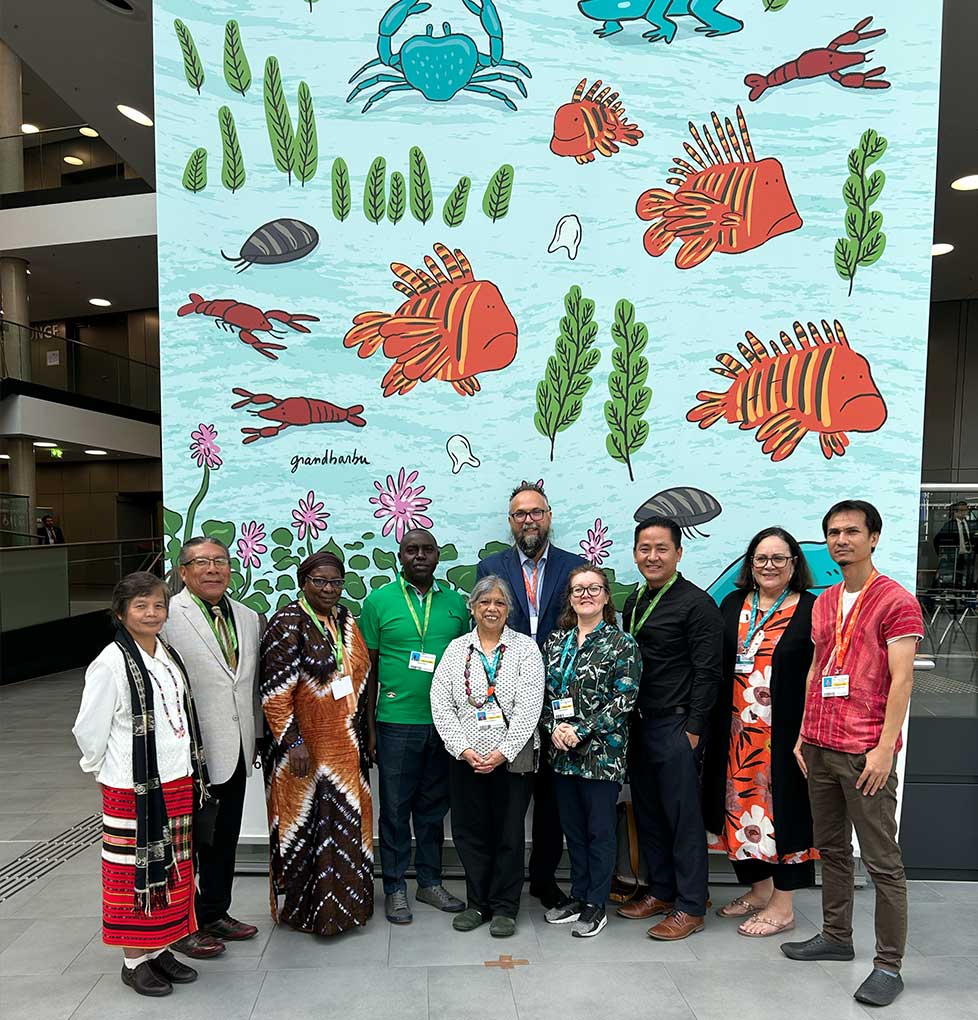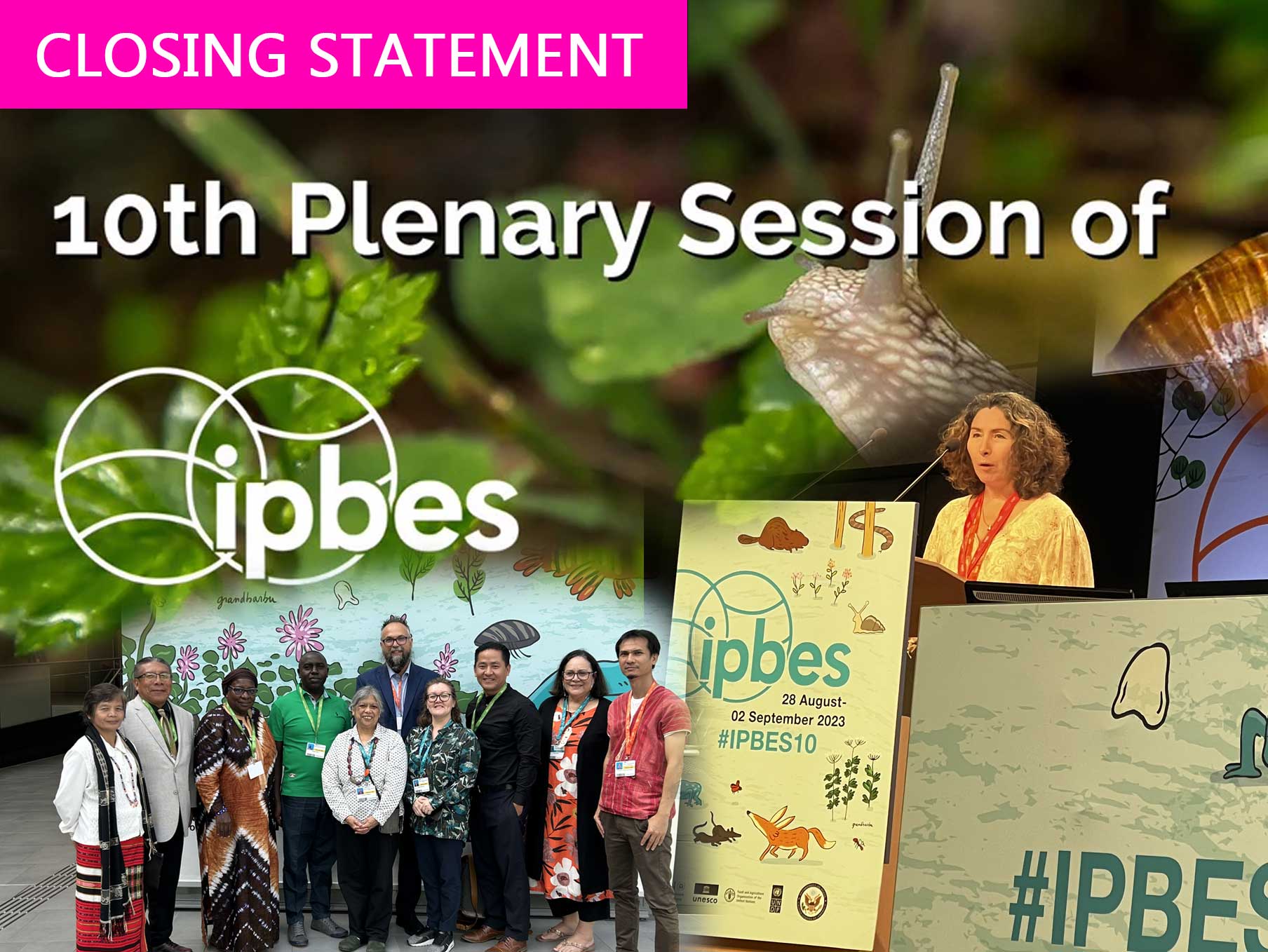September 2, 2023 | Bonn, Germany
Thank you madame chair,
I speak on behalf of the International Indigenous Forum on Biodiversity and Ecosystem services (IIFBES).
After 10 years of efforts and joint work to co-produce knowledge and recognize the remarkable contributions of IPLCs to nature conservation and our key role as partners in the science- policy and society interface, IPLCs highlight the achievements and challenges that diversity of ideas and processes implies and the importance of ILK work in IPBEs as a pathway and example for other international agreements, bodies, national governments, and society.
IIFBES welcomes the approval of the Assessment on Invasive Alien Species. We are very concerned about invasive species in our territories and resulting ecological and cultural impacts. As we are the most directly dependent on nature, our work, and contributions in monitoring, identifying, and controlling invasive alien species are critical to address this problem. Beyond the negotiation of words contained in the SPM, we all need to vigorously implement its findings and recommendations.
The Second Global Assessment will be a critical contribution to the Kunming- Montreal Global Biodiversity Framework, and being consistent with its content, recognizing IPLCS’ contributions to nature conservation, rights, different values systems, respecting ILK, and the sharing of benefits with. We look forward to full and effective participation of IPLCs in all the assessment processes and IPBES functions. As well as ILK and IPLCs issues, gender perspectives need to be mainstreamed in this Second Global Assessment, with special attention to the issues of indigenous women and girls and the human rights-based approach to inform the implementation and monitoring of the K M GBF.

The task forces, technical support units and all IPBES bodies, are the spaces to include and co- produce knowledge, capacity building activities and policy creation in a multidisciplinary way, we encourage for a better involvement and participation of IPLCs representatives in the tasks approved during this plenary. In this regard, we look forward to more efforts from parties to work with us and support our initiatives and representativeness in the global decision-making spaces, by providing funding for the participation of all IPLCs representatives from 7 geo-cultural regions recognized by the UN Permanent Forum on Indigenous Issues, including those from developed countries, consistent with other UN practices.
We thank Ana María Hernandez for all your support to IPLCs to improve the work with ILK in the IPBES functions. We look forward to continuing and strengthening our work to give to the decision makers and society the “best evidence” to benefit nature and people.
IPLCs have been and still committed to nature conservation and good relationships with Mother Earth as custodians for millennia. The current challenges call for putting us at the core of biodiversity conservation. This could be possible if countries are committed too, respect and recognize our rights. We look forward to continuing working in a cooperative and respectful way between different knowledge systems in the benefit of Mother Earth.
Thank you, Madame Chair,


